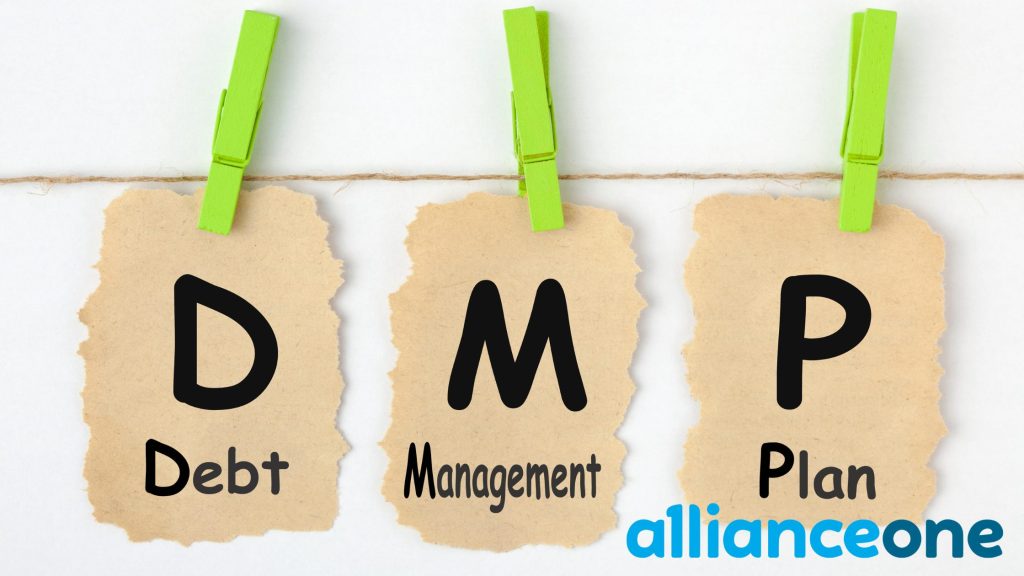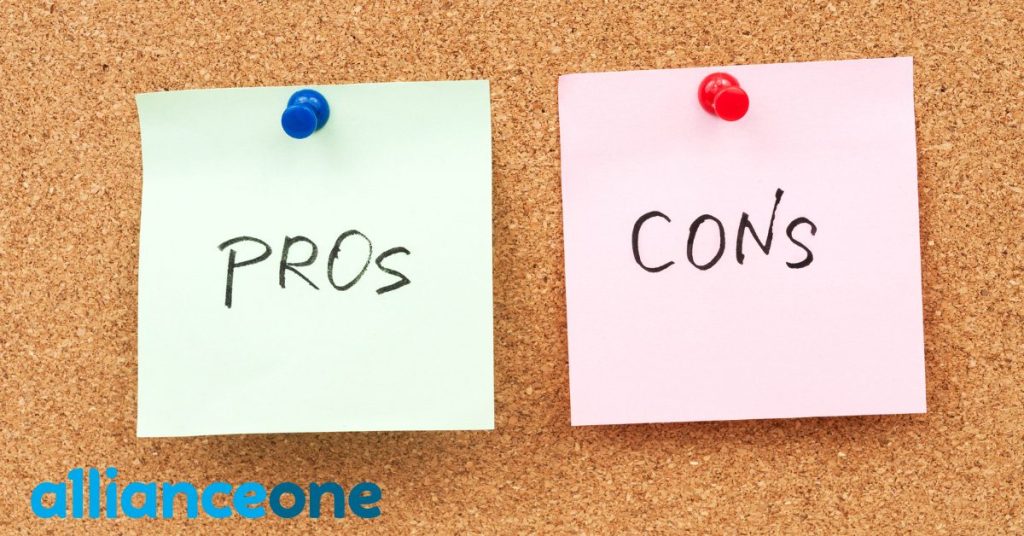The Ultimate Guide to Debt Management Plans

Debt management plans, or DMPs, can be a great way to manage your debt and improve your financial situation. A DMP is a type of debt payment plan that allows you to pay off your debts over time by setting aside money each month to pay them off. There are different types of DMPs, so it’s important to find one that works best for you.
This article will give you a brief overview of DMPs and how they can help you.
What are debt management plans?
Debt management plans are a type of financial planning that can help people deal with their debts. They can involve a number of different techniques, and they generally aim to help people pay off their debt faster, reduce the amount they owe, or both.
There are a few different types of debt management plans, but the most common is called an installment plan. Under this plan, people agree to pay back their creditors one or more fixed payments over a period of time. They may also be required to make minimum payments on top of these payments.
An alternative to installment plans is called a pay-as-you-go plan. Under this plan, people make only the minimum required payments on their debt each month, and then they allow the remaining money to roll over into new loans or debts.
Some debt management plans also include credit counseling or other assistance from professionals.
How do debt management plans work?
Debt management plans typically have three stages:
1. Identification
In the identification stage, people identify all of their debts and figure out how much they can afford to pay each month.
2. Reduction
In the reduction stage, people try to get out of debt by applying for low-interest loans or refinancing high-interest loans.
3. Repayment
In the repayment stage, people make monthly payments on their reduced debt amount.
So, do debt management plans work? They can be very effective if they are followed properly. If someone does not stick to the plan, they may find themselves back at square one with more debt than before.
Types of debt management plans
There are many different types of debt management plans, and each one has its own benefits and limitations.
For-profit
Debt management plans that are for profit can be beneficial for both the borrower and the lender. They can help to improve the borrower’s credit score and make it more likely that they will be able to get a loan in the future.
For lenders, these plans can help them get more money back from their loans than they would have if they had taken out a traditional debt management plan.
Nonprofit
Debt management plans for nonprofits can be quite different from plans for for-profit businesses. There are a few key things to keep in mind when designing a debt management plan for a nonprofit.
First, the plan should be tailored specifically to the organization’s needs and goals. Second, the plan should be flexible enough to adjust as needed but not so flexible that it becomes difficult to manage. Finally, the plan should be designed with a long-term perspective in mind, taking into account how debt will affect the organization over time.

Pros and cons of debt management plans
Debt management plans are a type of financial plan that allows people to pay off their debts over time. There are many pros and cons to using debt management plans, so it is important to weigh the benefits and risks before deciding whether or not to use one.
Here are some key points to consider:
Pros
- Your credit interest rate can be halved or even cheaper.
- Helps you pay off debt more quickly than you would have done yourself.
- Several debts are consolidated into one payment.
Cons
- It is mainly meant as a credit card relief program; it cannot be used for personal student loans or medical debt.
- It can take up to five years for your credit score to rebound, and you’ll generally be unable to use your credit cards or get new lines of credit during that time.
- Missing a payment can send ripples through your finances, causing your interest rate cuts to end prematurely.
Does a debt management plan work and is it right for you?
Debt management plans can be a great way to get your financial situation under control. Before getting one, though, it’s important to understand what they are and what they can do for you. A debt management plan is a contract between you and a creditor that sets out terms for reducing or managing your debt. The plan usually includes a combination of debt reduction, payment plans, and even loan forgiveness.
A debt management plan can help you save money in the short term by reducing your total amount owed. It can also help you avoid additional interest payments and prevent your debts from becoming unmanageable. However, a debt management plan, just like any debt payoff strategy, is not a magic bullet; it will not solve all of your financial problems overnight. You will still need to take action to improve your overall financial situation if you want to see real results from a debt management plan.
Alternatives to a debt management plan
Debt management plans are a helpful tool for managing your debt, but they aren’t the only option. If you’re considering a DMP, it’s essential to understand all of your debt relief options so that you can choose the best one for your situation.
Debt consolidation loan
Debt consolidation loans are a way to pay off all your debts. You take out one loan with a lower interest rate than you’re paying on your credit cards, and then use that money to pay off the rest of your debts.
The catch is that it takes longer to repay the loan than it would be if you paid off each credit card separately, so you have to decide whether it’s worth paying more in interest over time for peace of mind knowing that all of your debt is gone.
Debt settlement
Debt settlement is a negotiation with your creditors. You agree to pay a percentage of the debt, which is less than the full amount owed.
The best part about this option is that it can be done without filing for bankruptcy and will not show up on your credit report like bankruptcy does. This means that you won’t have problems getting approved for future loans or leases if any of them check your credit history.
Balance transfer credit card
A balance transfer credit card is a good option if you have high-interest credit card debt. A balance transfer allows you to move your current balance from one credit card to another with a low introductory APR. This can be helpful when consolidating debt, as it allows you to pay off higher-interest balances with your new lower-interest rate.
However, balance transfers usually come with an annual fee and higher interest rates than other cards—so it’s important to make sure that the total cost of transferring your debt into this new account will be less than just paying off the original loan on its own.
Debt validation
If you’re overwhelmed by your debts, the idea of a debt management plan may seem like a solution in search of a problem. Maybe you don’t want to pay off your debts on the terms offered by your creditors or maybe you’re skeptical of the value of using their services.
You might be right—it’s not always necessary to pay off all your debts in full. But if that’s what you choose, it can help to know how much money is really owed and why.
Debt validation is one way to challenge the amount of debt you owe and get answers about how it was calculated. It is a process used by creditors to ensure that a debt is actually owed. This can be done by reviewing the customer’s credit report, checking account balances, and other financial information. Debt validation can help reduce the risk of fraud and protect creditors from being repaid for debts that may not be legitimate.
Bankruptcy
Bankruptcy is a legal process that can help you get rid of debt and start over. It’s not the same as debt consolidation, which involves combining all your debts into one loan and paying back the new lender instead of your original creditors.
Bankruptcy is not an option for everyone, however. It’s generally only available if you can’t pay your debts and have no other option but to file. You’ll need to prove that you’re unable to pay back what you owe and it’s likely the bankruptcy will be contested by some of your creditors.
A DMP can be an excellent option for many people, but it’s not for everyone. You should consider your options before signing up for one. A debt relief program professional can help you explore alternatives to a DMP and make sure you have all the information you need to make an informed decision.
Top Debt Management Companies
Debt management companies (DMCs) are a popular option for people who need to get their debts under control. These companies offer a variety of services, including helping with budgeting and debt collection. Some DMCs also offer credit counseling and other resources to help people manage their debts more effectively.
There are several factors to consider when choosing a DMC. Cost is usually one important factor, but ratings and reviews from customers also matter. It’s important to find a company that has the expertise and experience to help you manage your debts successfully.
Alliance One Funding is one of the top debt management companies in the United States. We help thousands of consumers take control of their debt and live happier lives. We have many ways to help you get out of debt, such as personal loans, consolidation loans, and more. Our commitment to you is to work hard to get your debts paid off, without you having to sacrifice too much in the process.
How to Enroll in a Debt Management Program
In order to enroll in a DMP, consumers first need to find an approved lender. Once they have found an approved lender, they will need to complete an enrollment form that will detail their debt situation and proposed plan.
What to Expect While Living on a Debt Management Plan
Living on a debt management plan can be a challenging experience.
Here are some things to expect while living on one:
- You may have less money available to spend.
- You may have to make difficult choices about what you can and cannot afford.
- You may feel like you’re constantly fighting an uphill battle.
- You may have to regularly check your credit score and report changes to your creditor(s).
- You may need to develop a plan for how you will pay off your debt(s) in the long term.
- You may need to develop a new financial lifestyle habit in order to live on this plan effectively.
Despite all these challenges, living on a debt management plan can be manageable if you take the time to understand and prepare for it ahead of time.
How Will a Debt Management Plan Affect My Credit Score?
A DMP can lower your credit score, but it depends on the specific plan you choose. For example, a plan that pays off high-interest debt using a combination of principal and interest payments will have a smaller impact on your credit score than a plan that only pays off interest.
To see how a DMP will affect your credit score, first contact one of the three major credit bureaus: Experian, Equifax, or TransUnion. The companies will ask for your income, debts and current borrowing costs to calculate your credit score.
If you decide to pursue a DMP, be sure to keep close tabs on your credit score so you don’t fall behind on payments or increase your borrowing costs.
Life After a Debt Management Program
Debt management programs can be a life-saving option for those struggling to manage their finances. While these programs may seem restrictive at first, many people find that they are able to live more comfortably and freely once they have paid off their debt.
Here are some key tips to making the transition:
1. Seek out a debt management program that is right for you.
There are a variety of different types of debt management programs available, so it’s important to choose one that fits your specific needs.
2. Be prepared to make some sacrifices.
Often, debt management programs will require participants to make lifestyle changes, such as reducing spending or foregoing vacations and holidays. It’s important to be willing to make these changes in order to get your finances in order.
3. Set realistic goals.
Debt management programs are not a magic pill, and they won’t magically wipe away all of your debt. It is important to set realistic, attainable goals based on the program’s terms and conditions.
4. Be prepared to follow up regularly with your creditors.
It is important to know that your creditors will continue to contact you at least once a month. If you don’t follow up with them, they’ll call the debt management company and ask for payment.
5. Don’t let one creditor make all of the decisions for you.
Debt Management Plans be a very effective way of making sure that you are held accountable to your creditors. It is important to remember that many programs allow you to pay back your debts in installments, which means that you will have to make decisions and take action on your own.

Getting Started with a Debt Management Plan
Debt management plans are a way to get your debt under control, reduce interest payments, and improve your credit score. There are a few things you need to do in order to start a debt management plan: identify your debts, create a budget to prioritize which debts should be paid off first, set up automatic payments, and keep track of your progress.
Below is a general overview of each step:
Identify Your Debts
The first step is to identify all of the debts you have. This includes both personal and financial obligations. You can use an online debt estimator or contact your creditors directly to gather this information.
Create a Budget
Once you have identified all of your debts, you will need to create a budget to prioritize which debts should be paid off first. This will help you figure out which are the most important debts to pay off.
Create an Automatic Payment System
If you have a debt that is costing you more than twenty dollars per month, then it may be worthwhile to set up an automatic payment system. An automatic payment system can help you avoid late fees, charges, and interest. This will ensure that the debt is paid off faster and that you are able to stick with the program.
Contact a debt management expert
If you have a large amount of debt and are having trouble paying it off, then it may be worth contacting a reputable company like Alliance One Funding to help you out.
Alliance One Funding can help you avoid bankruptcy, get out of debt, and build up your savings. We have helped thousands of people all over the country get out of debt and save for their future.
Seek Expert Help
A debt management plan is an important part of any financial plan. It can help you save money and get out of debt while helping you avoid bankruptcy. It is a legal agreement between you and your creditors.
If you are looking to consolidate your debt, contact Alliance One Funding today. We can help you create a plan that works best for you and your financial needs.
Have you received a pre-approved offer code in the mail? Click here to get started on your application!
No Offer Code? Apply Online: https://allianceonefunding.com or Call us Today: (877) 373-0474
